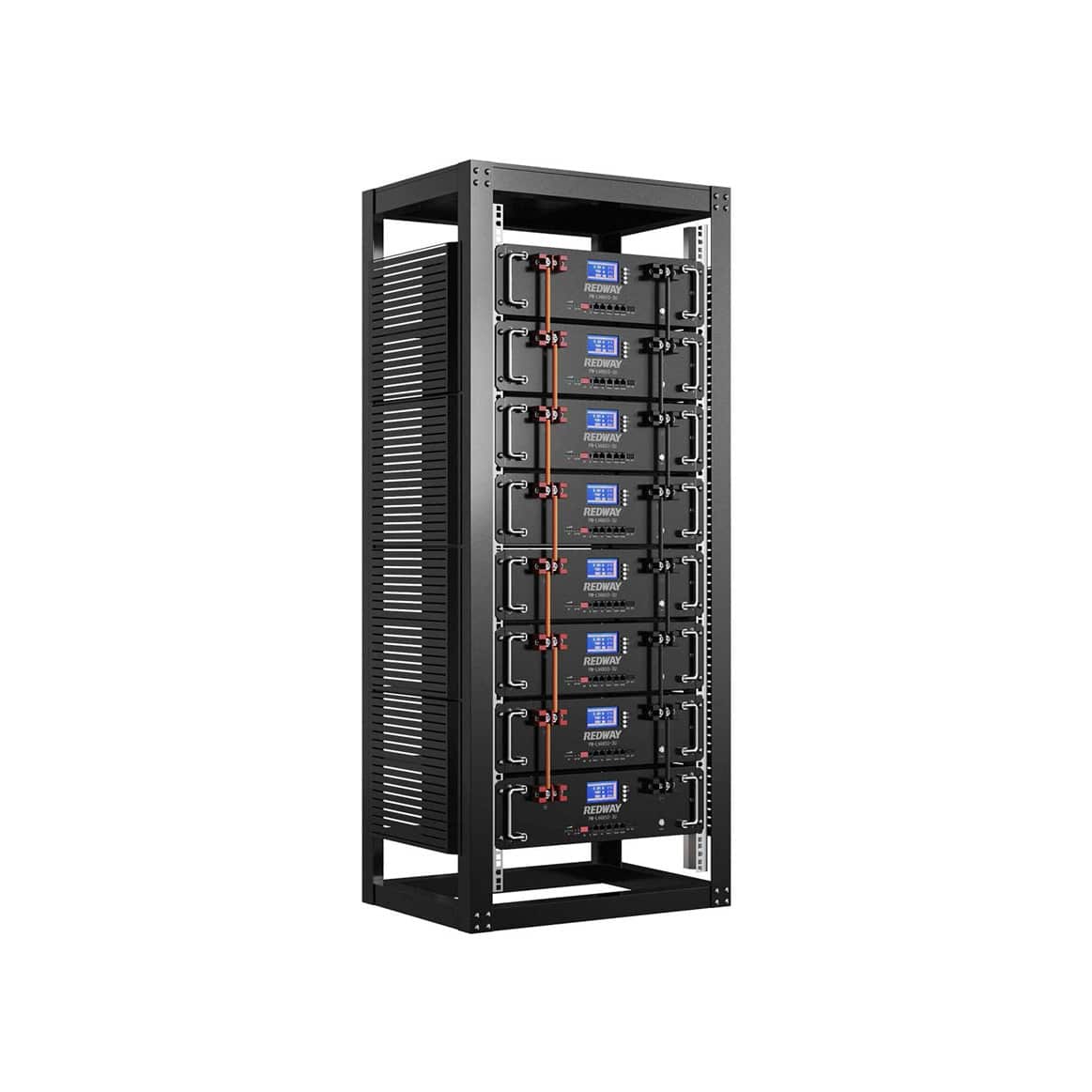In the landscape of contemporary business infrastructure, reliable energy storage solutions are essential. The 48V rack battery system emerges as a versatile and robust choice, providing significant benefits for businesses in search of dependable backup power solutions.
Understanding the 48V Rack Battery System
A 48V rack battery system is designed to offer high-capacity energy storage, making it suitable for critical infrastructure applications. Its reliability and scalability are key, positioning it as a vital investment for businesses of all sizes. This system ensures a continuous power supply during outages and allows for seamless expansion through the addition of more battery modules.
Key Features and Benefits
1. High Nominal Capacity and Energy Output
The system features a substantial nominal capacity and energy output, allowing for extended periods of power provision without interruption. This is particularly important for businesses that require continuous operation, such as data centers, hospitals, and manufacturing facilities.
2. Scalability and Flexibility
A notable advantage of the 48V rack battery system is its scalability. Businesses can begin with an initial configuration and expand by adding more battery modules as their energy storage needs increase. This flexibility ensures that the initial investment can adapt to future requirements, reducing upfront costs and enhancing long-term efficiency.
Determining Suitability for Your Business
While the 48V rack battery system presents many benefits, its suitability depends on several factors:
- Space Availability: Consider whether your facility has enough space to accommodate the battery racks.
- Cost Considerations: Assess the total cost of ownership, including installation, maintenance, and operational expenses.
- Maintenance Requirements: Understand the maintenance protocols and ongoing support necessary to maintain peak system efficiency.
- Scalability Needs: Project future growth and ensure the system can scale to meet increased demands without the need for major changes.

Lifespan and Performance Metrics
1. Lifespan of 48V Batteries
The lifespan of a 48V battery depends on usage patterns and chemistry. Lithium-based batteries typically have a lifespan of 10-15 years or 2000-3000 cycles, contingent on maintenance and environmental conditions.
2. Performance Calculation Examples
- 48V 20Ah Battery: Runtime can be calculated by dividing the battery’s capacity (20Ah) by the load (in amps). For example, a 5-amp load would provide about 4 hours of power (20Ah / 5A = 4 hours).
- 48V 100Ah Battery: With a higher capacity, this battery could supply power to a 5-amp load for up to 20 hours (100Ah / 5A = 20 hours).
Conclusion
The 48V rack battery system is a fundamental component of modern energy storage solutions for businesses. Its robust design, scalability, and long-term reliability make it an excellent choice for organizations that prioritize uninterrupted power supply and operational continuity. By understanding its features, benefits, and suitability factors, businesses can make informed decisions that align with their specific needs and future expansion plans. For more information on 48V rack battery systems or to discuss your energy storage requirements, contact us. Let us help you secure your business’s power needs today and into the future.
Related Posts
- PR LV5150 2U PRO Rack Battery System Review
- PR LV51100 3U PRO Rack Battery System
- PM-4850 Lithium Battery Module: Superior Efficiency and Reliability
- PM-48100 Rack LiFePO4 Battery Module
- Comprehensive Review of the PR-LV5150-3U Rack Battery System by Redway Battery
- Comprehensive Review of the PR-LV4850-3U Rack Battery System




